
Peter Sellers was an English actor and comedian. He first came to prominence performing in the BBC Radio comedy series The Goon Show. Sellers featured on a number of hit comic songs, and became known to a worldwide audience through his many film roles, among them Chief Inspector Clouseau in The Pink Panther series.

Dame Margaret Taylor Rutherford, was an English actress of stage, television and film.

Two-Way Stretch, also known as Nothing Barred, is a 1960 British comedy film directed by Robert Day and starring Peter Sellers, Wilfrid Hyde-White, Lionel Jeffries and Bernard Cribbins. The screenplay is by Vivian Cox, John Warren and Len Heath. A group of prisoners plan to break out of jail, commit a robbery, and then break back into their jail again, thus giving them the perfect alibi – that they were behind bars when the robbery occurred. However, their plans are disrupted by the arrival of a strict new Chief Prison Officer.

Passport to Pimlico is a 1949 British comedy film made by Ealing Studios and starring Stanley Holloway, Margaret Rutherford and Hermione Baddeley. It was directed by Henry Cornelius and written by T. E. B. Clarke. The story concerns the unearthing of treasure and documents that lead to a small part of Pimlico to be declared a legal part of the House of Burgundy, and therefore exempt from the post-war rationing or other bureaucratic restrictions active in Britain at the time.
Elizabeth Joan Winch, known professionally as Liz Fraser, was a British film actress, best known for being cast in provocative comedy roles.
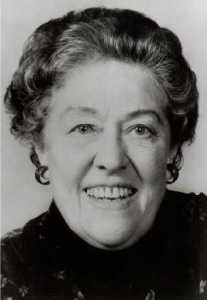
Margaret Rose Mount OBE was an English actress. As a child, she found acting an escape from an unhappy home life. After playing in amateur productions, she was taken on by a repertory company and spent nine years in various British towns, learning her craft. In 1955, she got her big break in the comic play Sailor Beware!: she created the leading role in a repertory production and, though unknown to London audiences, was given the part when the play was presented in the West End. She became known for playing domineering middle-aged women in plays, films and television shows.

Riverside Studios is an arts centre on the north bank of the River Thames in Hammersmith, London, England. The venue plays host to contemporary performance, film, visual art exhibitions and television production.

Only Two Can Play is a 1962 British comedy film directed by Sidney Gilliat starring Peter Sellers, Mai Zetterling and Virginia Maskell. The screenplay was by Bryan Forbes, based on the 1955 novel That Uncertain Feeling by Kingsley Amis.
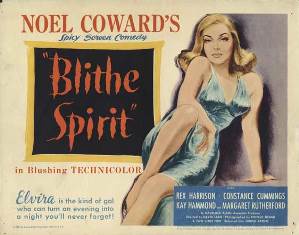
Blithe Spirit is a 1945 British supernatural comedy film directed by David Lean. The screenplay by Lean, cinematographer Ronald Neame and associate producer Anthony Havelock-Allan, is based on Noël Coward's 1941 play of the same name, the title of which is derived from the line "Hail to thee, blithe Spirit! Bird thou never wert" in the poem "To a Skylark" by Percy Bysshe Shelley. The song "Always", written by Irving Berlin, is an important plot element in "Blithe Spirit".
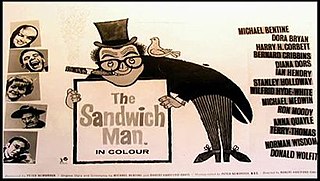
The Sandwich Man is a 1966 British comedy film directed by Robert Hartford-Davis starring Michael Bentine, with support from a cast of British character actors including Dora Bryan, Harry H. Corbett, Bernard Cribbins, Diana Dors, Norman Wisdom, Terry-Thomas and Ian Hendry. It was written by Hartford-Davis and Bentine.
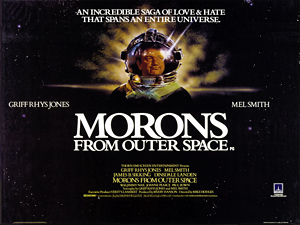
Morons from Outer Space is a 1985 British comedy-science fiction film directed by Mike Hodges and written by and starring Griff Rhys Jones and Mel Smith. It also stars Jimmy Nail and James B. Sikking.

The Mouse on the Moon is a 1963 British comedy film, the sequel to The Mouse That Roared. It is an adaptation of the 1962 novel The Mouse on the Moon by Irish author Leonard Wibberley, and was directed by Richard Lester. In it, the people of the Duchy of Grand Fenwick, a microstate in Europe, attempt space flight using wine as a propellant. It satirises the space race, Cold War and politics.

Up the Creek is a 1958 British comedy film written and directed by Val Guest and starring David Tomlinson, Peter Sellers, Wilfrid Hyde-White, David Lodge and Lionel Jeffries.

Richard de Pearsall Pearson was an English character actor who appeared in numerous film, television and stage productions over a period of 65 years. He played leading roles in several London West End plays and also supported Maggie Smith, Robert Morley and others in long-running West End stage productions. His many screen appearances included character parts in three Roman Polanski films.

Beauty and the Barge is a 1937 British comedy film directed by Henry Edwards and starring Gordon Harker, Judy Gunn and Jack Hawkins. It was produced by Julius Hagen's production company Twickenham Film Studios, but made at the Riverside Studios in Hammersmith rather than at Twickenham. It was based on the 1905 play Beauty and the Barge by W. W. Jacobs.
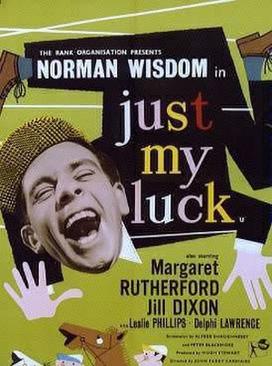
Just My Luck is a 1957 British sports comedy film directed by John Paddy Carstairs and starring Norman Wisdom, Margaret Rutherford, Jill Dixon and Leslie Phillips.
Comin' Thro the Rye is a 1923 British silent drama film directed by Cecil Hepworth and starring Alma Taylor and Ralph Forbes. The film was based on the 1875 novel of the same name by Helen Mathers. The title alludes to the Robert Burns 1782 poem "Comin' Through the Rye".

Martin Miller, born Johann Rudolph Müller, was a Czech-Austrian character actor. He played many small roles in British films and television series from the early 1940s until his death. He was best known for playing eccentric doctors, scientists and professors, although he played a wide range of small, obscure roles—including photographers, waiters, a pet store dealer, rabbis, a Dutch sailor and a Swiss tailor. On stage he was noted in particular for his parodies of Adolf Hitler and roles as Dr. Einstein in Arsenic and Old Lace and Mr. Paravicini in The Mousetrap.

Variety Jubilee is a 1943 British historical musical film directed by Maclean Rogers and starring Reginald Purdell, Ellis Irving and Lesley Brook. It depicts life in a London music hall from 1892 to the Second World War. It was made at the Riverside Studios in Hammersmith. The film was re-released in 1945, to capitalise on the popularity of Ealing's Champagne Charlie.
The Smallest Show on Earth is a 2015 musical based on the 1957 British film of the same name. The stage musical incorporates songs by Irving Berlin. It was the idea of director Thom Southerland, who wrote the script for the musical with Paul Alexander. The first production of the musical opened at The Mercury Theatre Colchester on 25 September 2015.

















